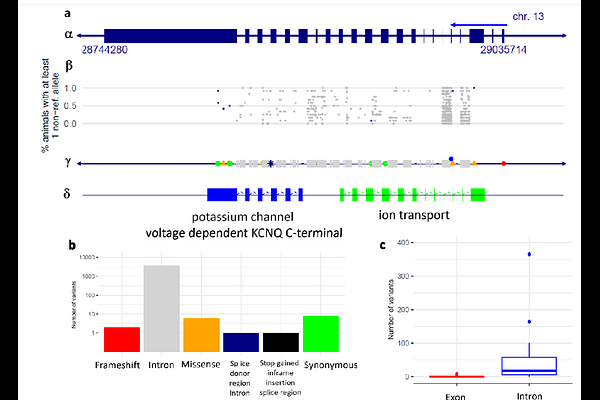Genome-wide association study reveals KCNQ3 gene as a risk factor for fear-related behavior in dogs and zebrafish

Genome-wide association study reveals KCNQ3 gene as a risk factor for fear-related behavior in dogs and zebrafish
Kubinyi, E.; Sandor, S.; Tatrai, K.; Varga, Z.; Varga, Z. K.; Topal, J.; Varga, M.; Jonas, D.; Turcsan, B.
AbstractFreezing behavior, characterised by attentive immobility as a reaction to a perceived threat, is widely studied in the context of fear, anxiety and stress. To uncover the genetic factors underlying this behavior, we conducted a genome-wide association study (GWAS) in kennel-housed beagle dogs. Our analysis identified a single-nucleotide polymorphism (SNP) in intron 5 of the KCNQ3 gene on chromosome 13 associated with freezing behavior in response to unfamiliar environments and people. To validate this finding, we used a zebrafish model, where CRISPR/Cas9-induced kcnq3 deficiencies led to heightened fear and arousal in two behavioral tests. KCNQ3 is implicated in several neurodevelopmental and psychiatric disorders, and our results highlight its evolutionarily conserved role in modulating fear responses. In dogs, an enriched environment can mitigate the adverse effects of KCNQ3 deficiency by reducing threat perception, highlighting the role of gene-environment interactions in shaping behavioral responses.